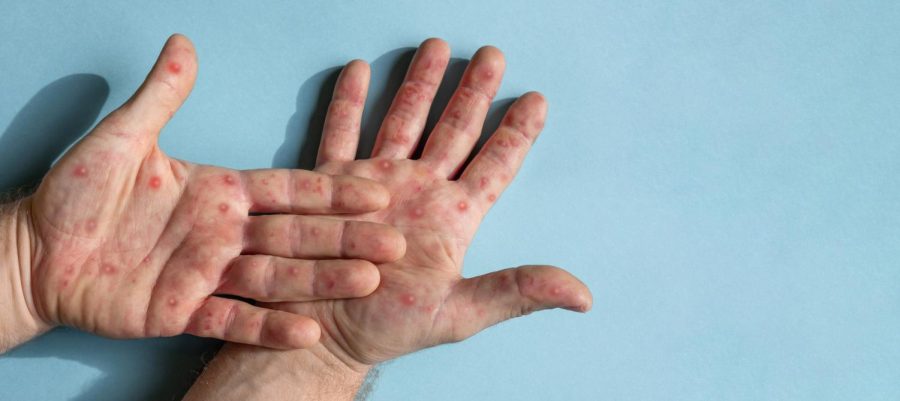Opinion | Educate yourself on monkeypox
Now is the time to learn about monkeypox.
August 23, 2022
Welcome back to Iowa City, Hawkeyes.
Students new and old are returning to campus this August, meaning there will more people, and illnesses, going around Iowa City.
Frat flu, mono, the occasional stomach virus — many college students have been there, done that. We tell ourselves it’s a part of the college experience.
But monkeypox, which was first reported in the U.S. earlier this year, is something you certainly don’t want during your time at the UI.
While a wide-spread outbreak has not yet occurred, it’s still important to understand monkeypox and how to protect yourself from catching the virus.
The most important way to protect yourself and others against something is to understand how it spreads.
It is understood that monkeypox can spread through skin-to-skin contact, especially if that contact is with a scab or pustule on an infected person. It is also known to spread through prolonged contact with an infected person’s bedding, towels, and clothing, as well as any objects or surfaces they may have touched.
The Center for Disease Control and Prevention says that it may also be able to spread through respiratory droplets, although they are still researching how often infection occurs by that method.
People diagnosed with the virus have reported being intimate with someone in some way. This includes hugging, kissing, and sex.
Monkeypox is not a sexually transmitted disease, and it is not limited to any sexual orientation. Although this virus is primarily affecting men who has sex with men, any prolonged contact with any infected person will increase your chance of obtaining the virus.
Currently, it is unclear if this virus can be spread by an asymptomatic person.
The onset of symptoms generally start anywhere from 6 to 13 days. Those infected have reported headaches, fevers, body aches, rashes on hands, feet, face, mouth, genitals, and/or eyes. Monkeypox symptoms last around 2 to 4 weeks.
As a general safety tip, the CDC recommends you wash your hands often with soap and warm water and frequently use an alcohol-based hand sanitizer to minimize any pathogens living on your hands. Don’t touch your face without clean hands, especially your eyes.
If you suspect you could be infected with monkeypox do not brush it aside. Cover up suspect areas and visit a doctor. If you end up getting monkeypox this year, UI has a page all about monkeypox and what to do if you are diagnosed.
This isn’t to say you should cower in your dorms and apartments. There have only been a one reported case in Johnson county. However, it is always good to know how to be safe in case of an outbreak.
This virus is definitely where I would keep the phrase “better safe than sorry” in my mind.
There are vaccines available to people who fit criteria, although supply is limited. There is a survey you can take to see if you are eligible to get one.
Stay safe out there and inform yourself more about the current outbreak via the CDC’s website.
Columns reflect the opinions of the authors and are not necessarily those of the Editorial Board, The Daily Iowan, or other organizations in which the author may be involved.



